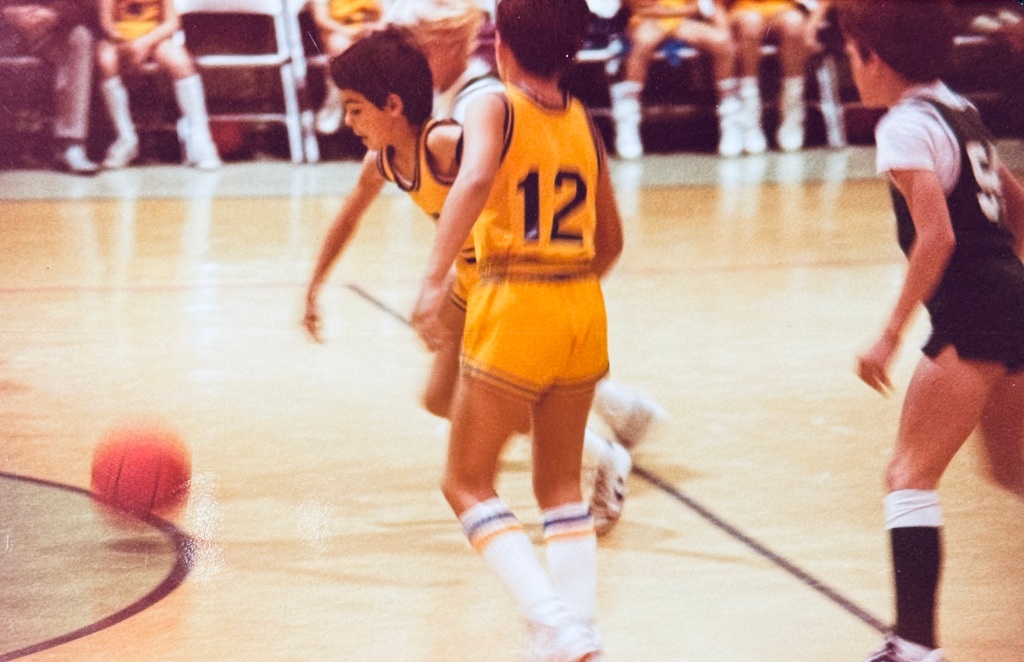
The first time I can remember the feeling was in youth basketball. I was in elementary school when my dad took me to the gym. The echoes of the hardwood, the carpet on the walls, and the padding on the end of the court behind the clear fiberglass backboards created the place where I would play many games with a team that would grow together and end up winning many games. Through all those years, though, my teammates never knew of a nagging feeling on the inside that I carried with me most of the time. It was common to feel it during practice, but it was clearly present during the games.
I carried this feeling when I played basketball, soccer, baseball, and middle school football. It didn’t matter who my coach was or who my teammates were or what sport I was playing. It started in elementary school, persisted through middle school, and stuck with me in high school.
It was the fear of man.
If there is one thing I could do all over as a kid playing sports, it would be to free myself from this fear of man. This fear stole so much of my joy, so much of my potential, so much of my opportunity to grow and become the best athlete I could have been. I regret that the fear of man played such a role in the developmental years of my life.
Playing basketball, I would hesitate to take the shot because I was afraid to miss. Instead of attempting a layup I’d pass to a teammate for him to shoot. I was afraid to miss, so I wouldn’t try. Playing youth baseball, I would hesitate to take a swing because I was afraid the kids would laugh or the coach would yell in anger if I didn’t make contact. Even though I was a decent quarterback in 7th grade who helped our team score, I was terrified of getting hit by the bigger kids. So I stopped after just one season.

There’s a 3000 year old Proverb that says “the fear of man brings a snare.” This describes my experience that limited my joy, produced hesitation, stunted growth, and kept me from fully enjoying the game.
But I know I’m not alone. This wasn’t just part of my athletic experience, it is part of all athlete’s experience at some level. The fear of man will trigger our fight, flight, or freeze reflex. For me, it would trigger the freeze expression. But depending on your personality, it can trigger your fight or flight. That’s why some athletes can’t control their anger. Others pass up the opportunity. And some let all the trash talk get under their skin they lose focus.
So for each of us, if we want growth and freedom and joy in athletics we first have to ask ourselves HOW this fear of man shows up in my life. We have to ask ourselves, “What’s my unique expression of the fear of man?”
Once we’re honest with ourselves, then we can begin to turn things around. We can begin to play more confidently, more focused, more comfortably, and more joyfully. And one of the best results is that we end up playing better. We end up making genuine strides in our athletic endeavors.
Now the thing about that 3000 year old piece of wisdom is that it not only described a human reality, but offered the solution. The full saying is found in Proverbs 29:25, “The fear of man brings a snare, but whoever trusts in the Lord is kept safe.” The person who trusts the Lord is safe from this snare. They are safe from getting tripped up, or even injured by this hidden trap.
And in this situation, “trusting the Lord” simply means that the athlete cares more about what God says about them than what other people are saying about them. The athlete cares less and less about trash talking haters or unsupportive angry coaches and cares more and more about becoming who God designed them to be. In short, they begin to put the price tags of life on the right things.





Leave a comment